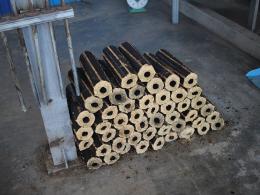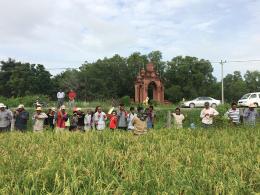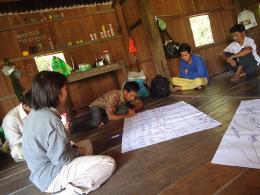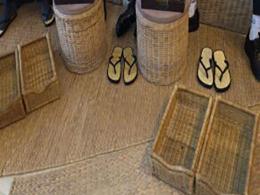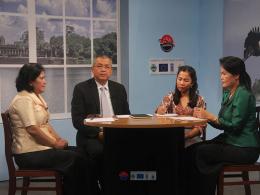Climate Smart Farming Project
Background
More than 40% of all cultivated soils in Cambodia are medium to severely degraded due to tillage-based intensive mono-cropping and usage of agro-chemical inputs. Land and soil degradation significantly diminish Cambodia’s climate change adaptation and mitigation potential. On the other hand, climate change will further accelerate land degradation. The proposed project will test and introduce climate smart/resilient farming techniques that will have positive effects on soil regeneration and strengthen both climate change adaptation and mitigation potential.
Climate-smart practices, i.e. no-till with integrated cover crops and application of organic crop protection, increase profits for farmers, enhance resilience of cropping systems and reduce emissions, both chemical pollutions as well as greenhouse gas emissions by sequestering atmospheric CO2. As a result, both food security and safety as well as water and energy security will be increased.
Overall Objective
Adapt and mitigate the effects of climate through adoption of climate smart farming
Specific Objectives
1. Produce bio-products in Cambodia; and
2. Reduce cost of farming productions including livestock and agro-industrial crops.
Approach
HEKS Cambodia partners with the Cambodian company SmartAgro to test their technology in Cambodia on three new applications: on cashew and pepper farms as well as for forage grass on communal land of Indigenous people. The focus is on biological solutions to improve soil management, with benefits both for climate change mitigation (carbon storage in soil) and adaptation (better retention of water and nutrients, and improved farm performance). Proposed solutions for cattle are also expected to reduce methane emissions. The project will test and localize biological solutions from Germany, France, Brazil and Thailand. SmartAgro tested a variety of traditional methods to improve production in a non- chemical way. Products to reduce pest infestation like neem, garlic, chili, lemongrass were tested, but results were unsatisfactory. That is why the company is importing technology from abroad, contributing to a knowledge transfer in climate change responses and adaptation of cropping systems. Bio products, together with the right techniques, contribute to controlling pests organically and boosting plant and soil health, increasing water retention capacity in soils and providing micronutrients.
Outputs and Key Activities
| Result | Key Activities |
|---|---|
|
|
Knowledge Products
• Case studies • Bio-products • Training materials
| Timeframe | Total Budget | Partners | Location |
|---|---|---|---|
| 2 Years, 9 months (October 2020 - June 2023) |
USD 136,515 (From CCCA US$ 100,000) |
HEKS, SmartAgro | Tbong Khmum, Kratie and Mondul Kiri provinces |


